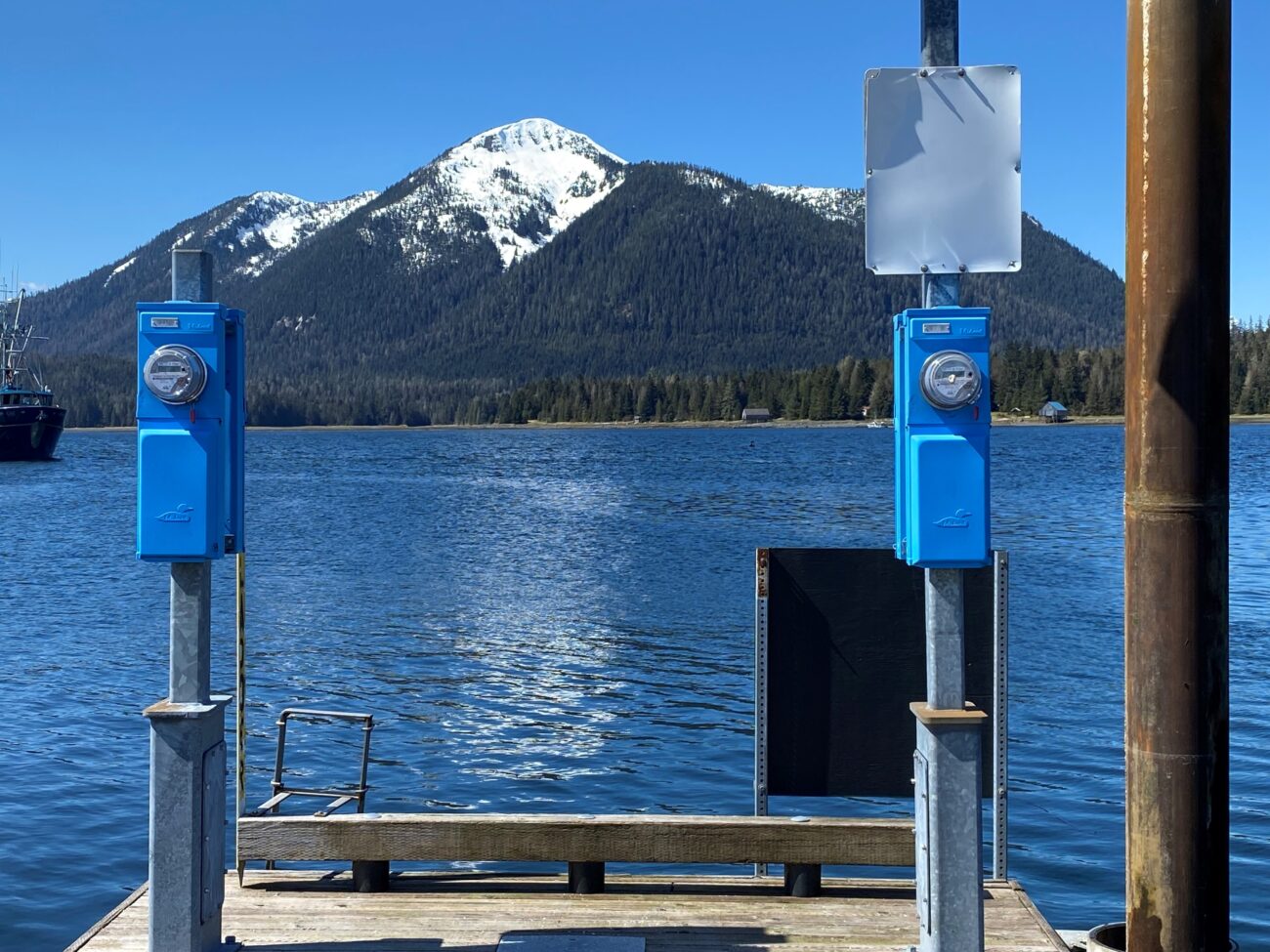
(Joe Viechnicki / KFSK)
Wrangell will spend three-quarters of a million dollars ($750,000) to overhaul its electricity metering system. Borough officials say it’s a much-needed update that could allow the island to meter water usage in the future as well.
For a few days each month, the white trucks of Wrangell Municipal Light & Power inch down the town’s streets while workers read hundreds of electrical meters so customers can be billed. Wrangell Borough Manager Jeff Good says it’s a pretty big chunk of the electrical workers’ time each month.
“From an operational standpoint, the way our guys do it is they typically all do their meter readings during the same week,” Good told Wrangell’s borough assembly at an April meeting. “And it takes them anywhere from three to five days to actually do a meter run in the wintertime, it’s closer to closer to five because of the weather. And then in the summertime, they can probably get around three or four.”
Good said with the community’s current electrical metering system, a lot of readings are done by hand, written down on paper. The department only has one handheld meter reading machine.
“In any given month when we do this, we have multiple errors, because as you can see, there’s multiple times especially on the hand-written notes when you can actually write something wrong,” Good continued.
And not every meter in town can be read from the truck.
“Some of our meters, for our housing units – they’re actually inside the house,” Good said. “So we actually have to knock on the door, go inside the house, and then take the meter. They just built on top of our meters, so it’s a very labor-intensive process the way we have it now.”
The borough’s stock of spare meters is dwindling, and Good estimated the 20 or so left would last the community about half a year. The software system Wrangell uses also became obsolete at the beginning of the year.
“We’re kind of at the point now where we need to either stick with a dilapidated system we have, or move to a new one,” Good told the assembly.
The new system is called Advanced Metering Infrastructure (AMI). It’s a system that several communities in Southeast have moved to in recent years – Petersburg has already made the change on parts of its local grid.
The price tag for a new system gave assembly members like Bob Dalrymple pause. Dalrymple said he thinks it’s a good project… but there are other much-needed electrical projects around town.
“We declined this before – I think it was [because of] cost,” Dalrymple explained. “Everybody liked it, it’s just the cost. And to me, that’s still a factor.”
But assembly member Ryan Howe said it’s better to pay the money now to have the most up-to-date system, rather than going with a cheaper option that could be obsolete in a decade.
“[It’s] like buying a car, you can buy a used vehicle or a certified used vehicle,” Howe said. “Certified may cost you a lot more money, but it’s not gonna break down right in the lot. It sounds a lot like we could nickel and dime ourselves to death and then not have electricity metering.”
Manager Good told the assembly that while the cost of getting an AMI system might be high, it’ll save the community money in a number of ways.
Because AMI meters are digital, it’ll be easier to access historical data or resolve billing issues. Electrical service can be turned on or shut off remotely. Good said if the community ever needed to have power shut off to specific areas, or do rolling blackouts or brownouts, the system would support that too. Plus, there are the savings from not having to do meter reads every month.
“On average, if you look at what that cost is right now to send three people out to actually take meter reads – anywhere between $100,000 to $150,000, is what we’re paying to read meters,” Good said. “We have a lot of work that our guys need to do, I’d rather have them putting in new poles, replacing poles, doing that kind of work instead of doing meter reads.”
The new system could also eventually allow the community to meter water connections. Right now, Wrangell utility users pay a flat fee for drinking water, which rose to just over $60 per month for residential users at the beginning of May.
Ultimately the assembly unanimously voted to spend the money for the new AMI system. Good estimated that work replacing Wrangell’s electrical meters could start at the end of summer (in August), and would take another three to four months to complete.
Get in touch with KSTK at news@kstk.org or (907) 874-2345.











